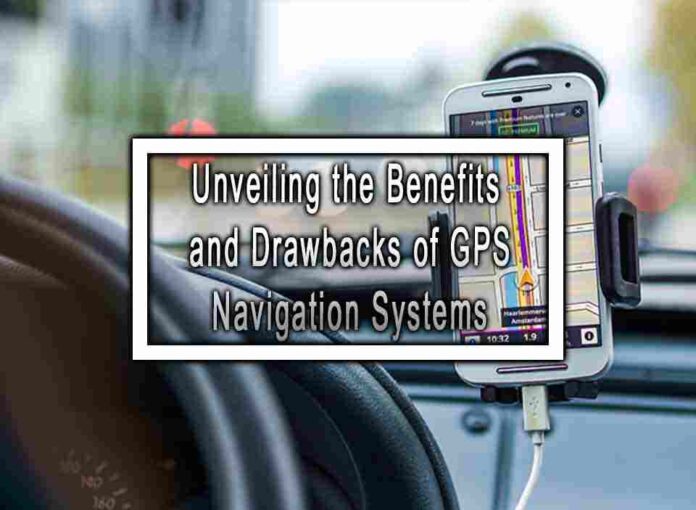GPS (Global Positioning System) navigation systems have become an integral part of modern life, offering a range of benefits for users. However, like any technology, they also come with some drawbacks. Let’s explore both the benefits and drawbacks of GPS navigation systems:
**Benefits of GPS Navigation Systems:**
1. **Accurate Navigation:**
GPS navigation systems provide precise real-time location data, allowing users to find their way efficiently, whether driving, walking, or cycling.
2. **Time and Fuel Savings:**
With accurate route planning and real-time traffic updates, GPS navigation can help users find the quickest and most fuel-efficient routes, reducing travel time and saving on fuel costs.
3. **Convenience:**
GPS systems offer user-friendly interfaces, voice-guided directions, and automatic rerouting, making navigation simple and accessible to even inexperienced users.
4. **Exploration and Adventure:**
GPS navigation systems enable users to explore new places confidently, even in unfamiliar territories, promoting travel and tourism.
5. **Safety:**
GPS can assist emergency services in locating vehicles in distress, helping to provide timely assistance and improve safety on the roads.
6. **Integration with Other Technologies:**
GPS navigation systems can be integrated with smartphones, car entertainment systems, and other devices, enhancing their functionality and convenience.
7. **Off-road Navigation:**
Some GPS systems are designed for off-road adventures, providing maps and guidance for hiking, camping, and outdoor activities.

8. **Fleet Management:**
GPS tracking is widely used for fleet management, helping businesses optimize routes, monitor vehicle locations, and improve efficiency.
**Drawbacks of GPS Navigation Systems:**
1. **Reliance on Technology:**
Over-reliance on GPS navigation can lead to reduced navigational skills and a reliance on technology that may not always be available or accurate.
2. **Signal Interference:**
GPS signals can be affected by tall buildings, tunnels, canyons, or adverse weather conditions, leading to inaccuracies or loss of signal.
3. **Errors and Inaccuracies:**
Although GPS technology is generally accurate, occasional errors or outdated map data may lead to incorrect directions or routes.
4. **Distractions:**
Interacting with GPS devices while driving can be distracting, potentially leading to accidents or unsafe driving behavior.
5. **Battery Drain:**
GPS navigation can consume a significant amount of battery power on smartphones and portable devices, especially during long journeys.
6. **Privacy Concerns:**
Some GPS systems track and store users’ location data, raising privacy concerns if the data is misused or accessed by unauthorized parties.
7. **Limited Use in Remote Areas:**
In remote or rural areas with poor GPS coverage, navigation systems may be less reliable, making it challenging to find accurate directions.
8. **Environmental Impact:**
Increased reliance on GPS navigation systems may contribute to higher energy consumption and environmental impact due to battery usage and data transmission.
Overall, GPS navigation systems offer numerous benefits, simplifying navigation and enhancing safety for users. However, it’s essential for users to remain mindful of the potential drawbacks and use GPS technology responsibly and in conjunction with traditional navigational skills to ensure safe and efficient travel.











